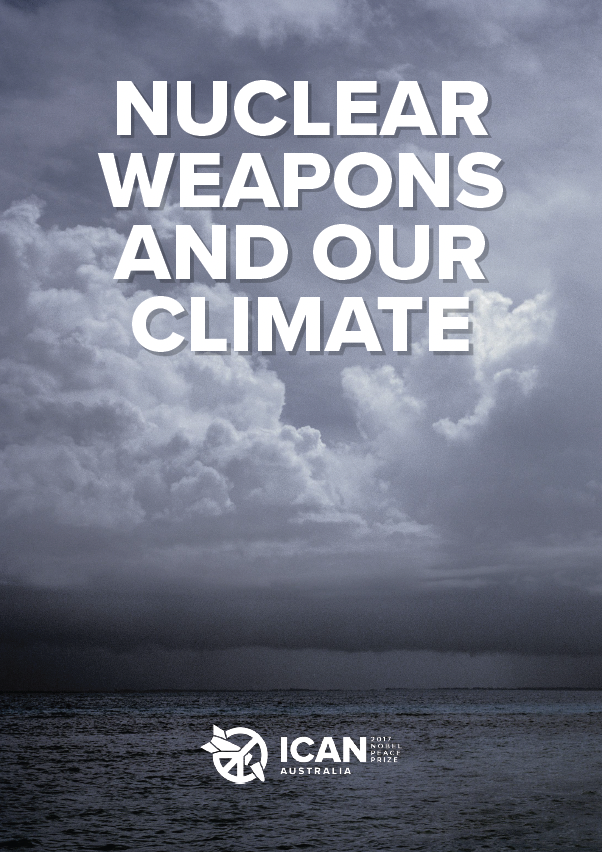CAMPAIGN NEWS:
COP29: ICAN Ambassador, Karina Lester, speaks up on nuclear weapons and climate change.

Karina Lester, a Yankunytjatjara-Anangu woman, second-generation nuclear test survivor, and ICAN Ambassador is attending COP 29 in Baku, Azerbaijan, to highlight the lived experience of nuclear impacts and speak strongly against adopting nuclear power as climate response. Karina’s family, community and Country has been heavily impacted by the continuing problems associated with the British nuclear testing program in Australia in the 1950s and 1960s, and she has also faced—and successfully countered—the threat of proposed national and international radioactive waste dump plans in South Australia. Her message is clear and she is working to make it widely heard: nuclear means radioactive risk and there are far better options.
On 16/11, Karina spoke powerfully at a Press Conference on Peace, Demilitarization, and Climate Justice at COP 29, organised by Peace Boat. She said:
My name is Karina Lester. I’m a Yankunytjatjara woman from the Western Desert region in South Australia. I’m also a second-generation survivor of British nuclear tests that took place in our Country in the 1950s and then through to the 1960s. I’m also an ICAN Ambassador and it is really important for me to share this story of the harms felt by Aboriginal people in Australia, the nuclear injustice that was done to Aboriginal people; many had passed, many suffered, and many still continue to suffer.
These tests were tests conducted by the British Government, an agreement by the Australian government to come and test on what they saw was open land, but actually Aboriginal people and Anangu-Tjuta lived on those traditional lands, practicing their traditional cultures and their ways of living in that region. Many people still suffer today.
If this is to be the COP peace gathering in Baku this year, we need to focus on peace and making sure that we are seeing more investment into those spaces. Peace for Anangu–for Aboriginal people–but also for the wider communities as well, across Australia, because we often [feel] imposed [on by] this industry [and experience] many, many pressures from [the] nuclear [industry]. Whether it’s mining on our traditional lands, whether it’s waste dump issues on our traditional lands, whether it’s nuclear power on our traditional lands, we seem to be forgetting about the past and not learning from the past; and the past that is a very dark, dark secret of what happened in Australia.
ICAN over the many, many years [have been] talking up around [issues to do with] nuclear [weapons] and the climate. Many First Nations peoples are very concerned because our traditional lands are scarred and where the scars of what happened in 1950 through to 1960Ss, for decades, people have been testing those scars are still evident, and you see that on our traditional lands. You also see the scars on people on First Nations peoples in our country of Australia. ICAN has done some work in this space around nuclear weapons and our climate. It’s really important for people to know about this report and the work that has been done with ICAN because the two do not go together, as we know that that is chaos. [Nuclear weapons and climate ] do not work together, of course, they are two massive existential threats, and each makes the other worse, and they are real, real concerns for all Indigenous peoples and for all of us in this planet—we have one. We need to do more in focusing on the health and well-being of this planet, the health and well-being of our people–all of us that are in this room. Thank you.
Read ICAN’s new briefing paper ‘Nuclear Weapons and Our Climate’ by clicking on the image below.

